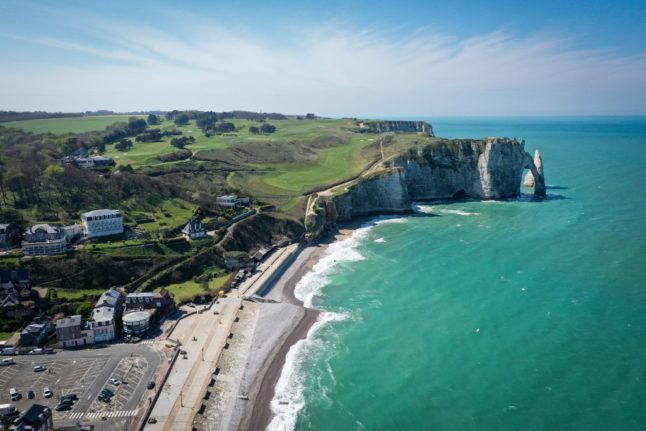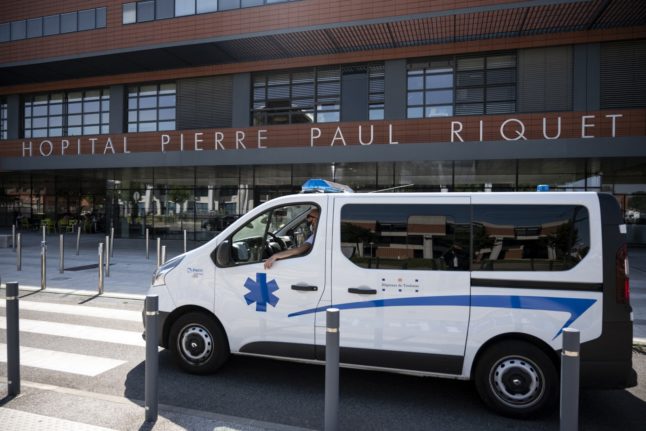The Local has been seeking out France’s best coastline in recent weeks, after a disagreement on an episode of our Talking France podcast where Editor Emma Pearson defended La Vendée as home to the best (and most underrated) coastline in the country, while journalist Genevieve Mansfield fought for Brittany.
To settle the debate, The Local asked its readers to share their favourite place to go on France’s shores, and the results are in, along with exclusive recommendations:
Brittany wins
Almost half (48 percent) of those who responded to The Local’s survey about the best part of France’s coastline voted for Brittany.
Where to go
Several people recommended the Morbihan département.
Angela Moore, said her favourite part of this area was the islet between Vannes and Lorient, which is home to romanesque chapel and the Etel river oyster, a delicacy in the area.
Others chose the Morbihan for its “lovely little coves, wonderful beaches and seafood,” as well as for boat rides in the gulf. Meanwhile, some pointed out Carnac, as a spot to visit, as the town is known for its prehistoric standing stones.
Some preferred travelling further north in Brittany, and they recommended the Finistère départment.
Rebecca Brite, who lives in Paris’ 18th arrondissement, said she loves this part of France for the overall atmosphere. Her top recommendation was to “Go all the way to the Baie des Trépassés and stay at the old, traditional hotel-restaurant of the same name. Pretend you’re in the legendary kingdom of Ys, swallowed up by the sea on this very site.”
Mon #Finistère ma #BaieDesTrépassés 😍😎 pic.twitter.com/3JjtF03qhH
— FéeCeKiTePlé (@Feecekiteple) October 7, 2018
The other part of Brittany that came highly recommended was the Emerald Coast (Côtes d’Armor) – specifically the Côte de Granit Rose.
The Mediterranean coastline
The Mediterranean remained a very popular vacation spot for readers of The Local, with almost a third of respondents claiming it as their favourite part of the French coastline. From sailing to cliffs and architecture, the Mediterranean had a bit of everything according to The Local’s readers.
Cassis and the Calanques were among of the most popular responses for where to go and what to see in this part of France.
Ending my tour of French Mediterranean appellations in #Cassis in the Calanques (limestone cliffs with inlets). The appellation is 10x smaller than nearby Bandol, and heaving with tourists that drink up all the wine. Top tip: whole lobster lunch at Chez Gilbert for €25. pic.twitter.com/rMAz0q4jp0
— Wine Blind Tasting (@BlindTasters) September 30, 2022
One respondent, Gini Kramer, said she loves this part of France because “There’s nothing like climbing pure white limestone cliffs rising right out of the sea. The hiking is spectacular too.”
Some counselled more lively parts of the riviera, like the old port in Marseille, while others suggested the quieter locations.
David Sheriton said he likes to go to the beaches of Narbonne: “It’s a gentle slope into the sea so great for the (grand)children.” He said that the area does have a “few bars and restaurants” but that it does not “attract the party crowds.”
In terms of beautiful villages, Èze came recommended for being home to “the most breathtaking views of the French coastline,” according to reader Gregg Kasner.
Toward Montpellier, Dr Lindsay Burstall said that La Grande Motte was worth visiting, for its “coherent 60’s architecture.” Burstall proposed having “a chilled pression au bord de la mer while watching the world go by…”
Meanwhile, three readers listed locations near Perpignan, and all encouraged visiting the area’s “pre-historic sites.”
Sally Bostley responded that her favourite spots were “between Canet-Plage and Saint-Cyprien-Plage” and she advised visiting “Collioure, Banyuls with the aquarium, Perpignan, nearby prehistoric sites, Safari Park, Prehistory Park.”
Other parts of the coastline
Though these locations may have received less votes overall, they still stood out in the minds of The Local readers:
Normandy did not receive as many votes as its neighbour Brittany, but it is still home to unique attractions worth visiting. The WWII landing beaches “plages de débarquement” came highly recommended, along with cathedrals and abbeys in the region, like Coutances in the northern Manche département.
Reed Porter, who lives in Annecy, likes to go to Êtretat when he visits Normandy. He had several recommendations, starting with “les falaises!” These are the dramatic cliffs overlooking the ocean.
Porter also suggested visitors of Êtretat head to “the glass stone beach” and the “old town” for its architecture. If you get hungry, there are “oysters everywhere all the time.”
Basque country was also highlighted for its proximity to the Pyrenées mountains. Maggie Parkinson said this was the best part of France’s coastline for her because of “The long views to the Pyrénées, the pine forests, the soft, fresh quality of the air, the many moods and colours of the sea – gently lapping aquamarine waves to thunderous, crashing black rollers churning foam onto the shore.”
Breathtaking panoramic view of the Pyrenees and the Atlantic Ocean in Biarritz. ☀️🇫🇷 #WeekEndVibes pic.twitter.com/2qBae0gK2B
— Nicolas Sully (@Nicolas_Sully) April 3, 2022
A huge fan of the area, Parkinson had several recommendations ranging from cuisine to “cycling the many paths through the tranquil pines, visiting Bayonne, the Basque Country and the Pyrénées or northern Spain (for wonderful pintxos).”
She said that she loves to “[chill] on the endless, wide sandy beaches or [rest] on a hammock in the park” or “[catch] a local choir sporting blue or red foulards singing their hearts out to traditional or rock tunes.”
Similar reasons were listed in favour of Corsica as France’s best coastline, as it is also home to tall mountains with beautiful views over the water.
If you are looking to visit Corsica, Paul Griffiths recommends “having a good road map” and then “just [driving] quietly along the coast and over the mountains.” He said that this is “all easily doable in a day” and along the way you can “find beautiful beaches, lovely towns with good restaurants – especially Maccinaggion and Centuri – to enjoy one day after another.”
Finally, the preferred coastline location for The Local’s France Editor, Emma Pearson, also got some support by readers, with one calling La Vendée an “unpretentious” and “accessible” place for a vacation.
Respondent Anthony Scott said that “Les Sables d’Olonne and Luçon both epitomise the spirit of Vendée.” He enjoys the “inland serenity and historic sites, beautiful beaches and inviting seashores” as well as “traditional appetising meals.” He also noted that the area is “not too expensive.”
READ ALSO Brittany v Vendée – which is the best French coastline?
Many thanks to everyone who answered our survey, we couldn’t include all your recommendations, but feel free to leave suggestions in the comments below.



 Please whitelist us to continue reading.
Please whitelist us to continue reading.
Would just like to clarify that La Rochelle and Île de Ré are to be found on the West coast of France and not the East coast as described under your newsletter photo today… 🙂